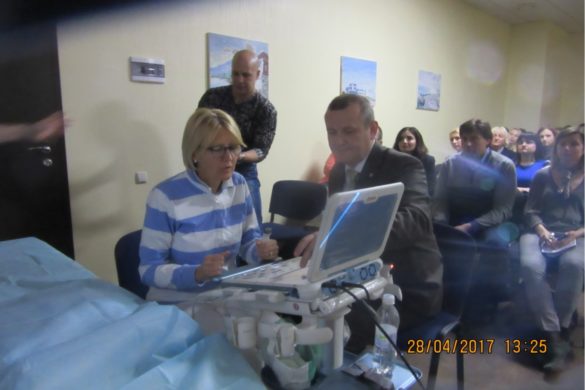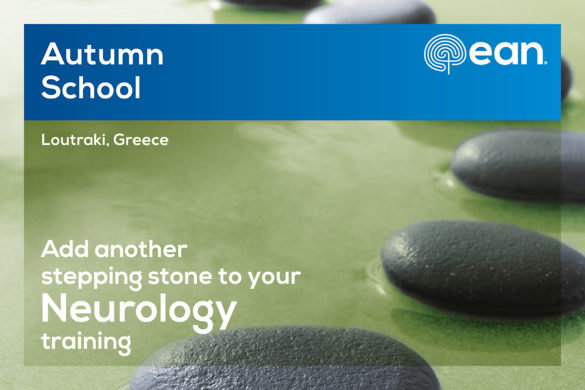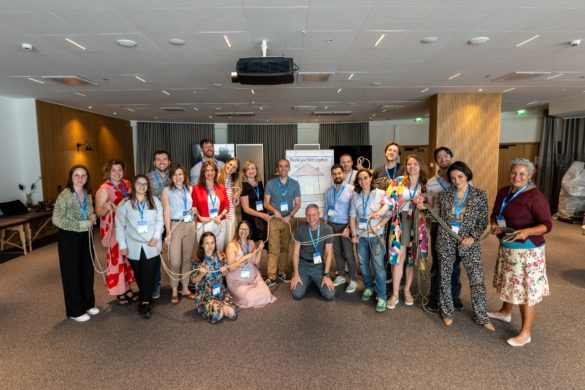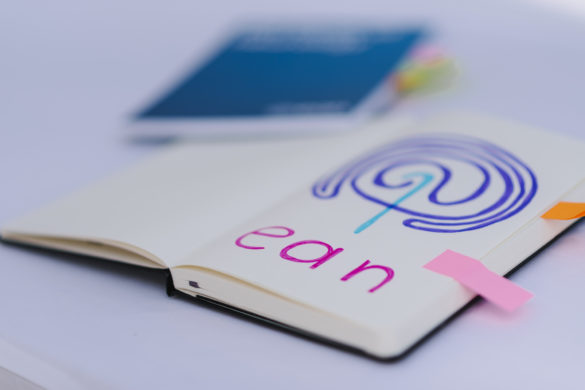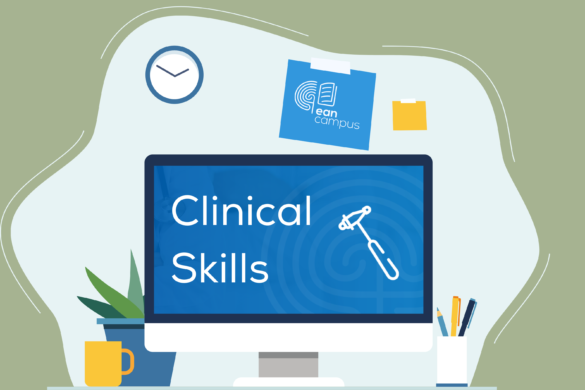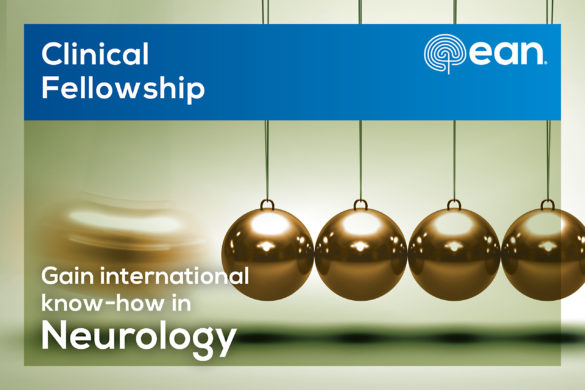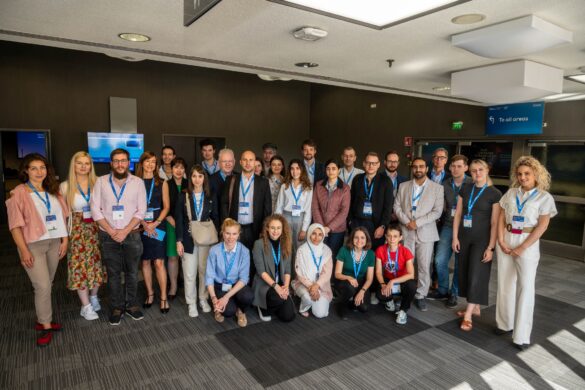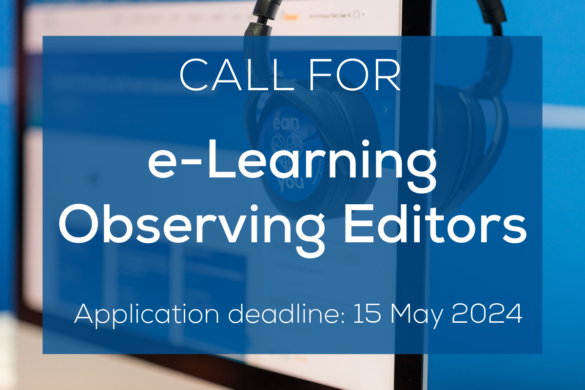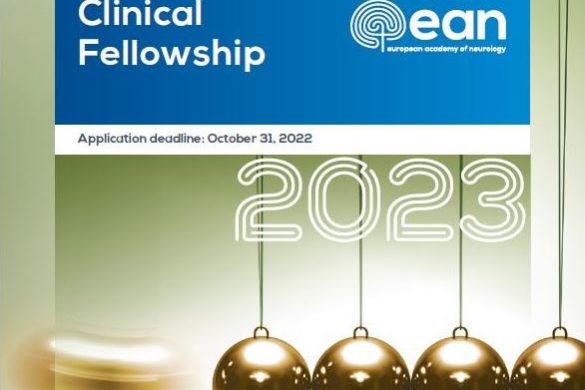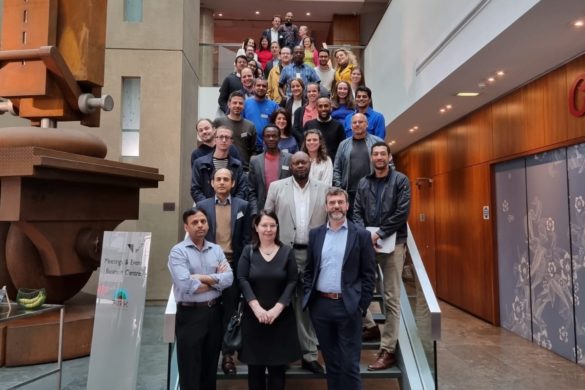by Ekaterina Titianova
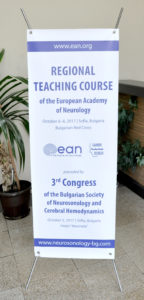 on behalf of the Bulgarian Society of Neurosonology and Cerebral Hemodynamics, I would like to express our gratitude towards the European Academy of Neurology for the honor to organize for a second time the Regional Teaching Course of Neurology in Sofia, Bulgaria from October 6th – 8th, 2017. The event was held in cooperation with Medical Faculty of St Kliment Ohridski Sofia University, the Military Medical Academy, and under the Aegis of the Ministry of Health of the Republic of Bulgaria.
on behalf of the Bulgarian Society of Neurosonology and Cerebral Hemodynamics, I would like to express our gratitude towards the European Academy of Neurology for the honor to organize for a second time the Regional Teaching Course of Neurology in Sofia, Bulgaria from October 6th – 8th, 2017. The event was held in cooperation with Medical Faculty of St Kliment Ohridski Sofia University, the Military Medical Academy, and under the Aegis of the Ministry of Health of the Republic of Bulgaria.
The EAN course successfully targeted its aim at providing a high level of scientific and practical knowledge in the fields of Interventional Vascular Neurology, advance of Nonvascular Neurosonology and interdisciplinary problems such as pain and headache, autonomic dysfunction and neurorehabilitation. These topics of social importance were presented by leading European experts. I would like to thank all the invited speakers for their great responsiveness and support.
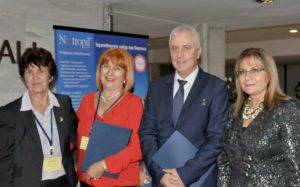
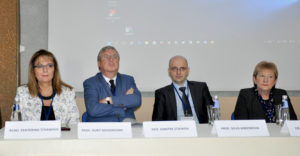

The EAN course succeeded to bring 307 specialists (228 Bulgarian and 79 foreigners), residents and students in Neurology, Physical Medicine, Rehabilitation, and Kinesiotherapy from 18 countries (Albania, Austria, Bosnia and Herzegovina, Bulgaria, Croatia, Germany, Greece, India, Italy, Latvia, Macedonia, Portugal, Romania, Russia, Serbia, Switzerland, Turkey, and Jordan). Among them 36 were students from different Bulgarian universities, which were allowed to visit and listen to the lectures and practical seminars. The venue was in the Bulgarian Red Cross, situated in the center of Sofia. The accommodation of the participants was nearby to the event – in Marinela and Hill hotels.
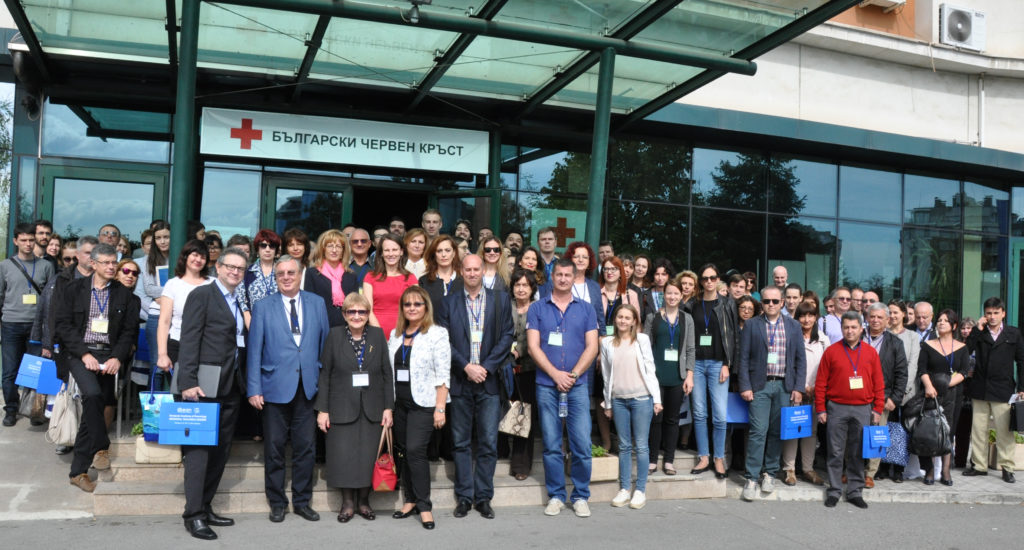
Each participant received a bag with the second issue of Neurosonolgy and Cerebral Hemodynamics Scientific Journal 2017 (issued by the Bulgarian Society of Neurosonology and Cerebral Hemodynamics and recently included in Emerging Sources Citation Index). This particular issue of the Journal and its supplement are entirely devoted to the EAN program, lectures and seminars. It has online open access in the webpage of the Society www.neurosonology-bg.com. EAN flash drives and important touristic information were also added into the individual course materials.
The representative of the youth section of Residents and Research Fellows of the EAN Educational Committee Dr. Miguel Pereira, MD (Coimbra, Portugal) introduced some important tips how to start a career as junior neurologist in Europe. The delegates had the chance to learn the numerous opportunities the European Academy of Neurology provides as educational grants to its members.
The first day of the course was dedicated to INTERVENTIONAL VASCULAR NEUROLOGY.
Important new aspects of stroke prevention, treatment and neurorehabilitation were in highlight topics of the invited speakers. Prof. Vida Demarin (Croatia) presented an overview on contemporary approach to stroke prevention and the role of the arts in enhancement of stroke recovery. The updated results from the mechanical thrombectomy as a relatively new treatment approach in acute stroke, and the workup of cryptogenic stroke were discussed by prof. Kurt Niederkorn (Austria). Assoc. Prof. Dimitre Staykov (Austria/Bulgaria) made a comprehensive review on the recent concept for the quality of stroke units and the importance of unified stroke register. During the interactive workshop he presented the international practical approach to the treatment of intracerebral hemorrhage. Prof. Silva Andonova (Bulgaria) paid attention on the prospective follow-up of thrombolytic versus standard therapy in acute ischemic stroke. Delegates from different countries discussed their own national strategies in stroke management. Conclusion was that in Eastern Europe the recanalization procedures in stroke are rare and insufficient in comparison to other EU countries due to different reasons. Agreement was reached that it is time to adjust the national stroke strategies in the Eastern European countries to the international standards for stroke managements, including teaching the specialists and people.
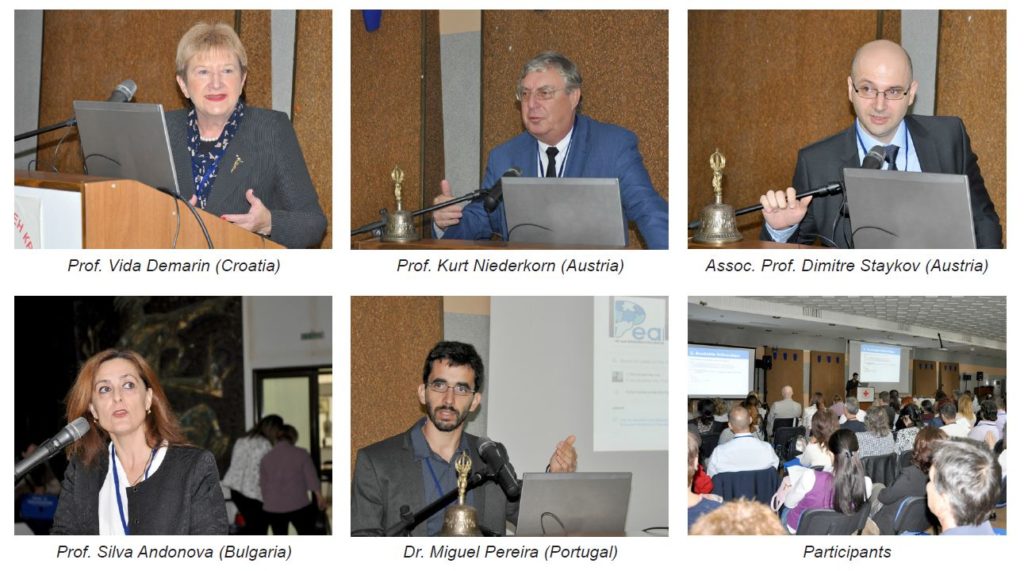
The second day was dedicated to the NONVASCULAR NEUROSONOLOGY.
Prof. Uwe Walter (Germany) started with ultrasound imaging of brain parenchyma in normal and some disease conditions. Prof. Luca Padua (Italy) demonstrated the ability of ultrasound methods to investigate the peripheral nerves. Prof. Fabienne Perren (Switzerland) continued with ultrasound imaging of orbita and optic nerves and diagnostic value of it in temporal arteries, eye symptoms and syndromes. The morning session continued with the lecture of Prof. Ekaterina Titianova (Bulgaria) who spoke about muscle imaging using myosonology in healthy subjects and neuromuscular disorders. The practical workshops in the afternoon session were very productive, raised many discussions and gave opportunity to some delegates to make self-training under supervision of the invited speakers.
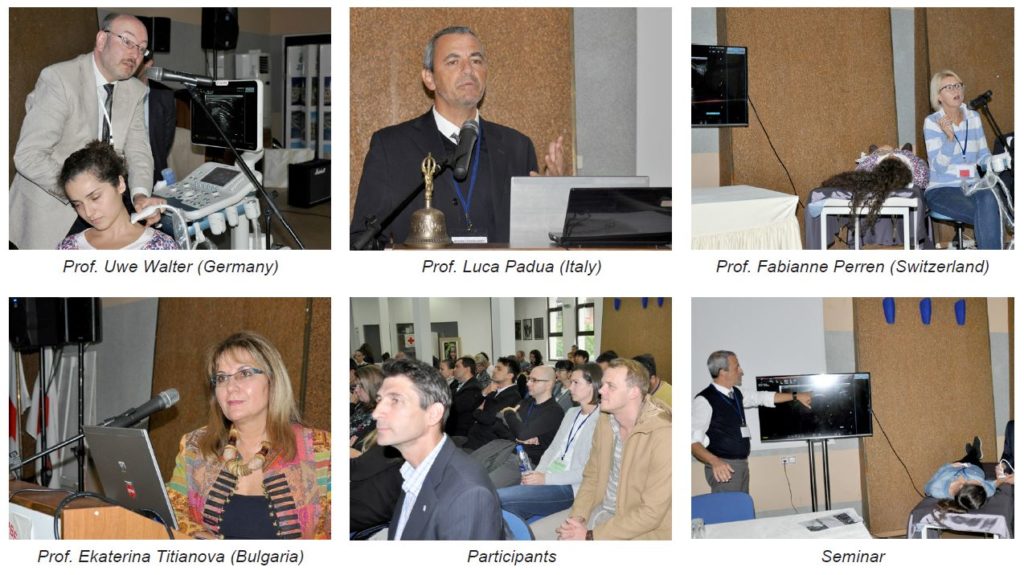
MIXED NEUROLOGICAL ASPECTS were dedicated to the third day of the course.
This day was devoted to important interdisciplinary symptoms and syndromes. Prof. Nurcan Üçeyler (Germany) presented the international guidelines on Fibromyalgia syndrome. Assoc. Prof. Milija Mijajlović (Serbia) made an overview on the recent concept of the Burning Mouth syndrome. Prof. Max Hiltz (Germany) spoke about differential diagnosis of syncope and seizure. Prof. Daniela Lubenova (Bulgaria) concluded the session with a program for home-based Neurorehabilitation in diabetic neuropathy.
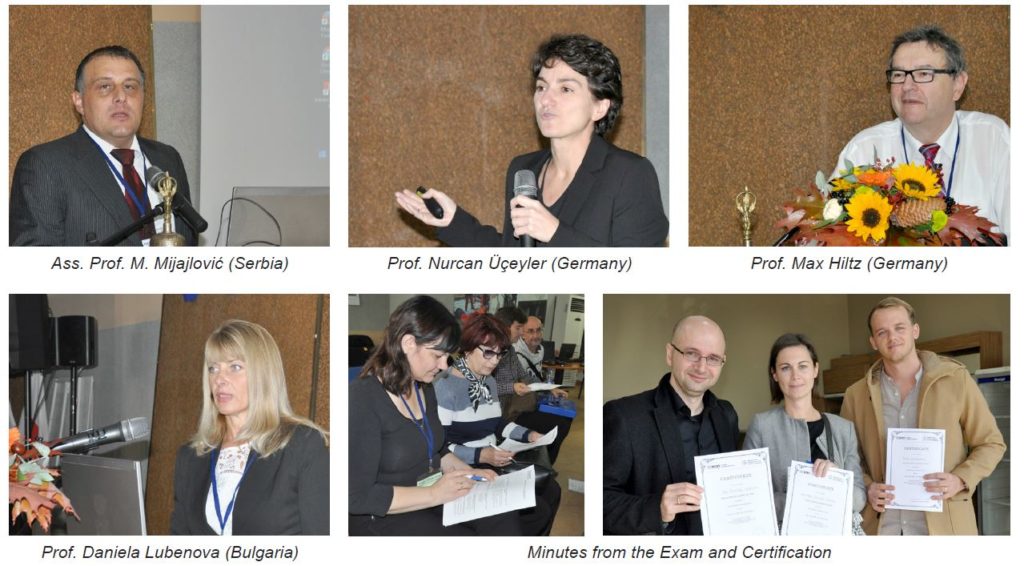
A questionnaire exam was organized on the third day after the end of all lecture sessions – 23 participants passed the exam and received an EAN Certificate for a successfully taken exam. The best answers were given by Dr. Vuk Aleksic from Serbia, who was admired at the closing ceremony.
The EAN TRC has been accredited with 22 CME points by the Bulgarian Medical Association. All participants received a Certificate of attendance with these points. The lecturers received Certificates of attendance with 32 CME points.
CULTURAL PROGRAMME
Along with the training, delegates had the opportunity to enjoy the history and the beauty of Sofia – one of the oldest capitals in Europe. On the second day of the course although heavy raining, a walking City tour was organized for the delegates for seeing the ancient and modern atmosphere of Sofia. The Gala dinner was organized to all participants in a traditional Bulgarian restaurant. The evening was full of many positive emotions due to the delicious Bulgarian food, folklore dances and program.
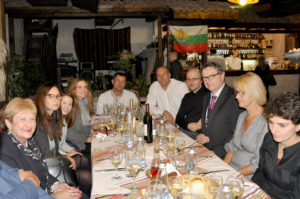
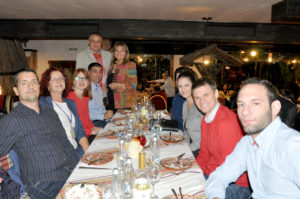
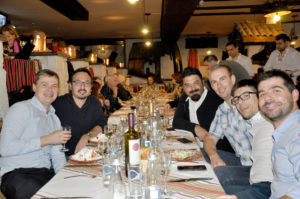
Our meeting turned to be a very beneficial forum for teaching, learning and exchange good medical practices. People from different countries spent great time together sharing their professional experience, expressing their readiness to learn and acquire additional knowledge. We strongly believe that the Regional Teaching Course in Sofia 2017 succeeded in creating a remarkable experience for all participants, lecturers and guests and helped to promote the same Neurology in all European countries.
We are grateful to the European Academy of Neurology, all invited speakers, delegates, national institutions, partner universities and sponsors for the excellent cooperation in realizing this event with great success. We also express special thanks to our professional meeting organizer Atlas Consulting Holding Group.
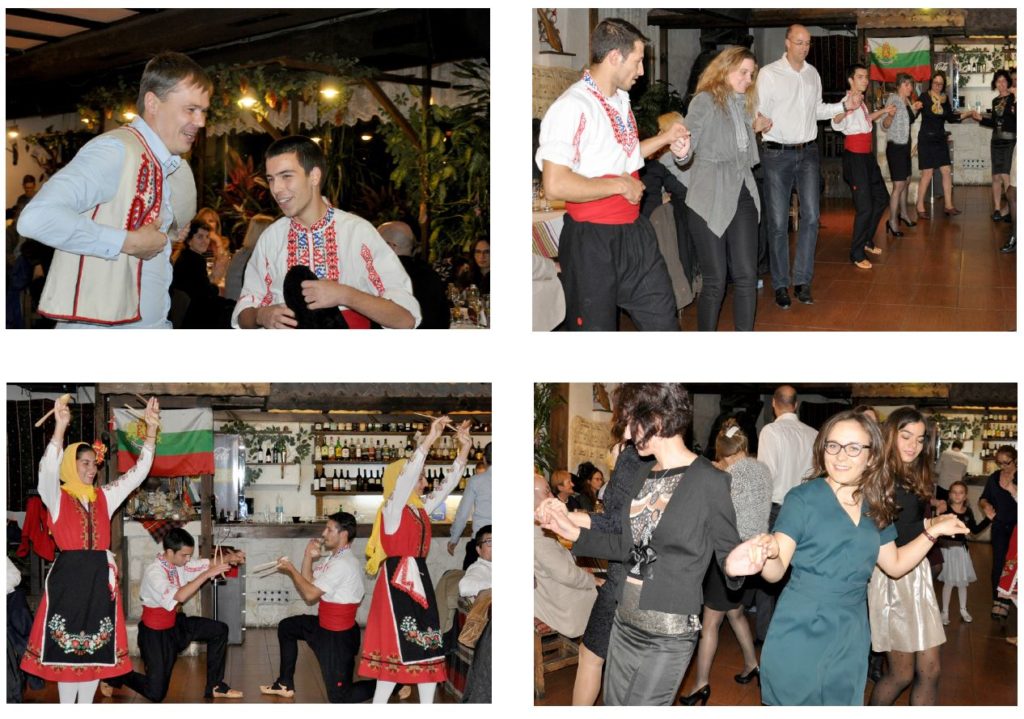
EKATERINA TITIANOVA is Professor of Neurology, Chair of the Organising Committee of the EAN RTC, President of the Bulgarian Society of Neurosonology and Cerebral Hemodynamics, Head of the Clinic of Functional Diagnostics of Nervous System at the Sofia Military Medical Academy, member of the Faculty Council and Head of the Department at the Medical Faculty of St. Kliment Ohridski Sofia University, Academician of the Bulgarian Academy of Sciences and Arts and the Serbian Royal Academy.
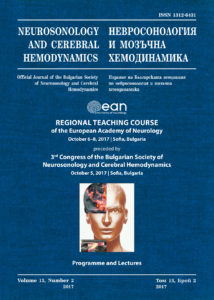 BULGARIAN SOCIETY OF NEUROSONOLOGY AND CEREBRAL HEMODYNAMICSThe Bulgarian Society of Neurosonology and Cerebral Hemodynamics (BSNCH) is a non-governmental organization established in 2005. It imposes a policy of continuous training and professional elevation of its members and offers to the Bulgarian healthcare a highly qualified and European certified human resource in the field of Neurology. The Society is the national leader in the introduction of the world standards in ultrasound diagnostics of the nervous system. It publishes online with open access an English-Bulgarian scientific journal named Neurosology and Cerebral Hemodynamics, recently included in Emerging Sources Citation Index. More information about the BSNCH can be obtained in the web pages www.neurosonology-bg.com, www.bg.wikipedia.org, and https://www.facebook.com/neurosonologybg/
BULGARIAN SOCIETY OF NEUROSONOLOGY AND CEREBRAL HEMODYNAMICSThe Bulgarian Society of Neurosonology and Cerebral Hemodynamics (BSNCH) is a non-governmental organization established in 2005. It imposes a policy of continuous training and professional elevation of its members and offers to the Bulgarian healthcare a highly qualified and European certified human resource in the field of Neurology. The Society is the national leader in the introduction of the world standards in ultrasound diagnostics of the nervous system. It publishes online with open access an English-Bulgarian scientific journal named Neurosology and Cerebral Hemodynamics, recently included in Emerging Sources Citation Index. More information about the BSNCH can be obtained in the web pages www.neurosonology-bg.com, www.bg.wikipedia.org, and https://www.facebook.com/neurosonologybg/




